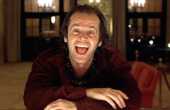AndyJanz
Contributing writer for The Artifice.
Junior Contributor II
- Lurker
- Sharp-Eyed Citizen
- ?
- Articles
1 - Featured
0 - Comments
19
- Ext. Comments
4 - Processed
4 - Revisions
4
- Topics
2 - Topics Taken
0 - Notes
8
- Topics Proc.
3 - Topics Rev.
2
- Points
267 - Rank
X - Score
145
Latest Articles
Latest Topics
Who is "The Bad Guy"?Enter into a discussion about the identity of the villain in media and how this identity has changed and/or evolved over time. I think it would be interesting to take a sampling of different media over time (film, TV series, video games, literature) and analyze which group/people represent the "Bad Guy" in each and how that may correspond to the specific historical time period. Older Bond films often pit British intelligence against the Soviets – along with films such as Hunt for Red October – while many modern films concentrate themselves on Middle Eastern conflicts (i.e. London Has Fallen.) Does the bad guy always fall under a certain nation? Are directors forced to deal with the ‘politically correct’?
|
French Revolution-era Paris in Assassin's Creed: UnityAnyone who has played this game knows that the developers did a fantastic job. Anyone who has both walked the streets of Paris and played this game has most likely had their mind blown. I am the latter, and also a student of French language and History. The accuracy with which a Revolution-era Paris is depicted not only thematically but geographically accurate to an incredibly detailed degree. If anyone out there is a Revolution buff and enjoyed this game, aidez-moi! |
Latest Comments
| Where’s Johnny? Questions left over from Stanley Kubrick’s "The Shining" | |
Thank you!! | Where’s Johnny? Questions left over from Stanley Kubrick’s "The Shining" |
Please do! Let me know what you find!! | Where’s Johnny? Questions left over from Stanley Kubrick’s "The Shining" |
It gets better every time!! Thanks friend! | Where’s Johnny? Questions left over from Stanley Kubrick’s "The Shining" |
I can’t truly be sure what your friend, the “production designer”, thought about the film’s intention. These are simply questions that arise from me, an audience member, after watching. As far as I’m concerned, audience interpretation has little to nothing to do with authorial intention. If the creator didn’t intend something but the audience finds it anyway, does that mean it’s not there? | Where’s Johnny? Questions left over from Stanley Kubrick’s "The Shining" |
Very true- some cuts had to be made! But for a film lasting around three hours, I hesitate to describe it as “short”! | Where’s Johnny? Questions left over from Stanley Kubrick’s "The Shining" |
Thank you! | Where’s Johnny? Questions left over from Stanley Kubrick’s "The Shining" |
If the creator didn’t intend something but the audience finds it, does that mean it’s not there? | Where’s Johnny? Questions left over from Stanley Kubrick’s "The Shining" |

I love the book as well – I think you are right in that they posses different elements and offer a great compliment to one another. I personally love the end of the book and the resolution to the conflict there as much as I love the ending of the film. It’s interesting how two very different ways of concluding the same story can be equally as successful.